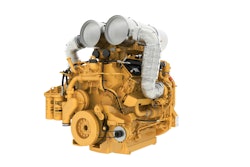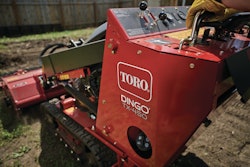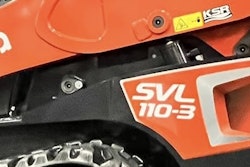Late last month, Detroit Diesel‘s 65-year-old Redford, Mich., manufacturing facility played host to a wide range of dignitaries, media and guests. The full house was on hand to witness the Redford facility being reborn – cast anew as a model for efficiency, forward thinking and technological expertise.
An initial modernization investment of $275 million would soon transform a plant built in 1938 into the Freightliner Group‘s diesel engine headquarters not just for North America, but for its NAFTA operations and ultimately global engine production as well.
But a bright future for Redford was never a given. In June 2003, after taking a hard look at Redford’s operations, DaimlerChrylser management came to an unpleasant realization: The facility simply wasn’t competitive. The plant was filled with old, outdated manufacturing equipment. Abandoned machinery sat vacant in vast, darkened parts of the plant. Dramatic changes would be needed if the Redford facility was going to take Detroit Diesel into the 21st century.
High-level discussions began at once to see if Redford could be saved. A litany of concerned officials met with top DaimlerChrysler management on the issue: Michigan Gov. Jennifer Granholm and U.S. Sen. Carl Levin, D-Mich., were among the many state and local politicians who fought to keep Detroit Diesel in its ancestral home. Representatives from the United Auto Workers collaborated with company officials to cast new, innovative labor contracts.
Over time, Redford’s future evolved into something unforeseen: It became a model for a new type of plant – a so-called “mall concept” – a plant big enough and flexible enough to allow DaimlerChrysler to use every single bit of workspace to maximum effect. Instead of just one company, Redford would become home to a host of companies producing symbiotic products for the Freightliner truck group.
But the “mall” doesn’t refer only to the different business units that will occupy the Redford building. “It’s also a ground-breaking agreement with the UAW,” said Carsten Reinhardt, president and chief executive of Detroit Diesel. “For the first time ever, the workers in this plant will all be working together, but under different labor contracts based on their respective business unit. It was this key agreement – and we’re so honored that Local 162 looked ahead and voted to ratify this new business model – that gives us the flexibility to make the “mall” manufacturing concept a reality. That agreement is the beginning of the Redford renaissance — the symbolic start of a new future at Redford.”
The plan is ambitious: In addition to Series 60 diesel engine production, the plant will also be upgraded to produce Detroit Diesel’s new heavy-duty engine line appearing in 2007. That same year, Redford will begin assembly of Mercedes-Benz MBE 900 medium-duty truck diesel engines.
Redford will also become home to expanded axle production. DaimlerChrysler’s Axle Alliance Company will use its space on the Redford plant floor to expand into gear set manufacturing, increasing to 85,000 square feet of manufacturing area as Freightliner integrates these proprietary axles throughout its product lines.
And there’s more: The Redford facility will become Freightliner’s “Component Manufacturing Center,” producing DaimlerChrysler’s Purem particulate filters – an integral part for meeting the severe diesel emissions regulations for the 2007 heavy-duty engine.
And finally, Redford will now serve as worldwide headquarters for both Sterling Truck Corporation and Western Star Trucks. Both business units will relocate from Willoughby, Ohio, in the second quarter of 2005. “It just makes sense,” said John Merrifield, senior vice president, sales and marketing, Sterling Truck and Western Star Trucks, of the impending move. “The ability to have so many of our corporate assets under one roof will be fascinating and beneficial to our customers. We can leverage the strengths of each business unit here to deliver the most advanced trucks and engines the world has ever seen.”
Rainer Schmueckle, president and chief executive of DaimlerChrysler’s Freightliner Group, agrees. “Redford is a critical facility for DaimlerChrysler,” he said. “The confidence, skill, pride and professionalism of Redford’s employees has made this renovation a reality. Legendary engine manufacturer Detroit Diesel, along with all DaimlerChrysler brands and its 25,000 employees worldwide, will provide leadership in all aspects of the North American heavy-duty truck market.”










